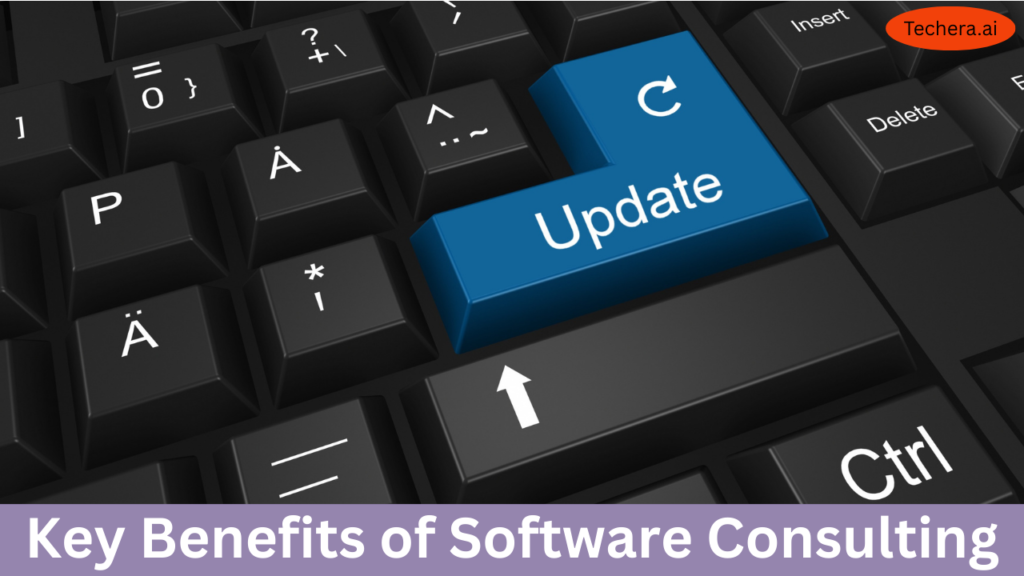
Introduction
Let’s face it—technology can either boost your business or bog it down. What is Software Consulting and How It Helps You Choose the steps in. If you’re wondering what software consulting is and how it helps you find the right tech solutions instead of just the flashy ones, you’re in the right place.
The Role of Software Consultants
What Do Software Consultants Actually Do?
What is Software Consulting are like tech translators. They understand both the technical world and your business world. Their job is to bridge that gap by recommending, planning, and sometimes even implementing the right tools and systems to solve business problems.
In-House Teams vs. External Consultants
“Can’t my IT team do this?” you may ask. Sure, but internal teams often focus on maintenance, not strategy. Consultants bring an outside perspective, fresh ideas, and deep experience across industries and platforms.
Understanding Business Needs First
Aligning Tech With Business Goals
Before touching any code, a good consultant dives into your company’s goals. Are you trying to scale? Cut costs? Improve efficiency? Tech only matters if it supports these aims.
Identifying Pain Points and Opportunities
They’ll assess what’s holding your company back. Maybe your data is scattered across systems. Maybe customer service is clunky. Whatever it is, they’ll spot the gap and propose solutions that actually work.
How Software Consulting Works
Step-by-Step Consulting Process
- Discovery – Understand your business, team, and challenges.
- Analysis – Audit current tools and workflows.
- Strategy – Recommend solutions and create a roadmap.
- Implementation – Help roll out and test new systems.
- Support – Provide training and ongoing help.
Types of Software Consulting
Consultants specialize in areas like:
- ERP systems (for inventory, HR, accounting)
- CRM tools (for sales and customer relationships)
- Custom software development
- Cloud migration and infrastructure
Key Benefits of Software Consulting

Time and Cost Savings
Why waste months (and money) testing software that doesn’t fit? Consultants help you skip the trial-and-error and go straight to what works.
Strategic Tech Alignment
They don’t just pick software—they choose the right software for your strategy, size, and industry.
Improved ROI on Software Investments
With the correct tools, your team can work more efficiently rather than more laboriously. Better productivity = better profits.
Choosing the Right Technology
Assessing Current Infrastructure
Consultants analyze what systems you already have—what’s working, what’s outdated, what’s overlapping—and build from there.
Recommending Tools, Platforms, and Custom Builds
Depending on your needs, they might suggest ready-made tools like Salesforce, or custom-built platforms designed from scratch for your business.
Avoiding Costly Mistakes
How Consultants Prevent Tech Mismatches
Selecting the incorrect software might cost you money and time. Consultants help you avoid shiny-object syndrome and focus on what’s actually useful.
Navigating Vendor Negotiations and Licensing
They know the red flags in vendor contracts and can help you negotiate better deals, terms, and licensing agreements.
Custom vs. Off-the-Shelf Software
Pros and Cons
- Off-the-shelf: Faster, cheaper, but not tailored.
- Custom: Perfect fit, scalable, but takes more time and budget.
How Consultants Guide This Decision
They weigh your budget, timeline, and goals to help you make the right call.
Implementation Support
Integration With Existing Systems
The best software in the world is useless if it doesn’t talk to your other tools. Consultants ensure seamless integration.
Testing, Rollout, and User Training
They help test, train your team, and fix bugs early, so you don’t crash and burn after launch.
Long-Term Strategy and Scalability
Future-Proofing Your Business
Consultants don’t just solve today’s problems—they plan for your future growth.
Planning for Growth and Updates
Tech evolves fast. They help you choose platforms that grow and adapt with your business.
Also Read : What is Software Consulting? Key Insights for Companies Looking to Optimize Technology
Real-World Examples
Case Studies of Successful Software Consulting
A retail company increased online sales by 40% after CRM consulting. A logistics firm slashed admin time in half after ERP integration. The proof is in the numbers.
Common Industries Benefiting the Most
- Healthcare
- Retail
- Logistics
- SaaS
- Finance
When Should You Hire a Software Consultant?
Red Flags That You Need Help
- Using spreadsheets for everything
- Systems don’t talk to each other
- Employees frustrated with tech
- Growth plateauing despite effort
Timing and Budgeting Considerations
Early investment saves more in the long run. Factor consulting into your digital transformation budget from day one.
Qualities to Look for in a Software Consultant

Skills, Experience, and Mindset
Look for:
- Industry experience
- Communication skills
- Strategic thinking
- Willingness to challenge your assumptions
Questions to Ask Before Hiring
- What’s your process?
- Have you worked in my industry?
- Can you show case studies?
- How do you handle implementation?
Common Myths About Software Consulting
Debunking Misconceptions
- Myth: It’s only for big companies → Truth: Small businesses need it even more.
- Myth: Consultants replace your IT team → Truth: They support them.
- Myth: It’s too expensive → Truth: It saves more than it costs.
What Business Owners Get Wrong
Many jump into tech decisions without strategy. That’s like buying shoes without knowing your size.
Conclusion
What is Software Consulting isn’t just for tech giants—it’s for any business that wants to grow smarter, faster, and more efficiently. By aligning your technology with your goals, consultants save you time, money, and stress. Whether you’re scaling up, modernizing systems, or just trying to stay competitive, bringing in a software consultant could be the smartest decision you make this year.
Frequently Asked Question
Q. What industries benefit most from software consulting?
A. Industries like healthcare, finance, logistics, retail, and SaaS benefit most—but any business using software can see results.
Q. How long does a typical software consulting engagement last?
A. Anywhere from a few weeks to several months, depending on project size and goals.
Q. Is software consulting only for big companies?
A. Not at all. Small and medium businesses often need it the most to stay competitive.
Q. What distinguishes IT assistance from software consulting?
A. Consulting is strategic—focused on long-term improvements. IT support is more about day-to-day troubleshooting.
Q. How do I know if I need a software consultant?
A. If you’re unsure about your tech direction, facing frequent inefficiencies, or planning growth—it’s probably time.

